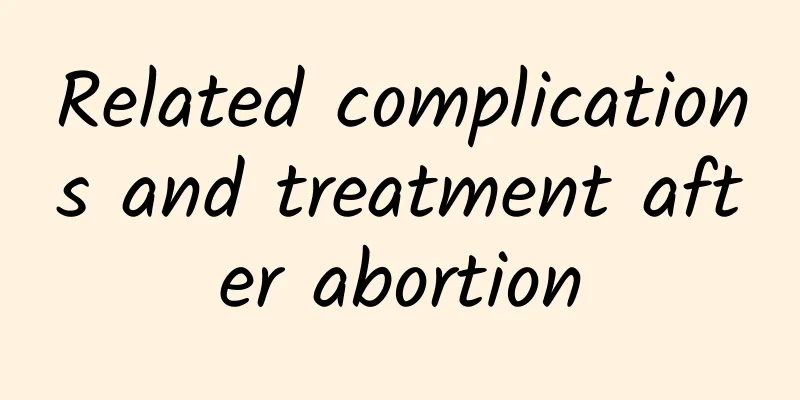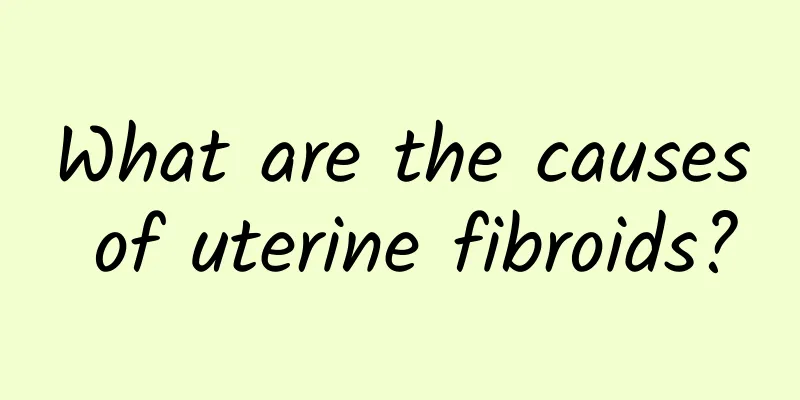Related complications and treatment after abortion

|
Artificial abortion, also known as artificial abortion, refers to the termination of pregnancy by surgical means. If the operation is carried out in strict accordance with the operating procedures, the incidence of complications is not high. Otherwise, the following complications may occur: 1. Uterine bleeding Generally, the amount of bleeding during an artificial abortion operation is about 30 ml. If the amount of bleeding is large, uterine contraction drugs should be given and the residual embryonic tissue in the uterine cavity should be quickly removed. Generally, patients bleed for 3 to 4 days after the operation. If the bleeding is similar to the amount of menstruation and continues, it may be an incomplete abortion or a combined infection, and you should go to the hospital for diagnosis and treatment in time. 2. Uterine perforation If the operation is not standardized or the surgeon moves roughly, it may cause uterine perforation. Therefore, the surgeon should pay attention to careful and gentle operation during the operation. If perforation occurs, it should be treated in time. 3. Residual pregnancy tissue Incomplete removal of the embryonic tissue during surgery may lead to bleeding and lower abdominal pain. In this case, traditional Chinese medicine, uterotonic drugs, etc. can be used to promote its excretion. If necessary, curettage can be performed again to remove residual tissue. 4. Infection If the patient has uncontrolled genital inflammation before surgery or if aseptic operation is not strictly performed during surgery, pelvic infection may occur. At this time, anti-infection drugs should be used for treatment in a timely manner. 5. Intrauterine adhesions If the cervix and uterine cavity are damaged during surgery, intrauterine adhesions may occur, but the incidence is low. After intrauterine adhesions occur, the cervix can be dilated or an intrauterine contraceptive device can be placed after separating the adhesions to avoid the recurrence of adhesions. In addition to the above situations, abortion can also cause menstrual disorders, endometriosis, infertility and other conditions in women. |
<<: Pathological manifestations and staging of hyperplastic vulvar leukoplakia
>>: Cervical erosion is not really erosion
Recommend
Symptoms of pelvic effusion during lactation
Symptoms of pelvic effusion during lactation: 42 ...
What should patients with uterine fibroids pay attention to?
Many patients are afraid of the appearance of ute...
Li Ying loves to eat grapes to lose weight. Anthocyanin promotes metabolism
In addition to their sweet and sour taste, grapes...
How to regulate irregular menstruation in women
How to regulate irregular menstruation? Many wome...
What are the causes and treatments for vulvar itching?
The causes of vulvar itching include poor hygiene...
How to induce menstruation? Share 6 common methods to induce menstruation
Women are very familiar with menstruation, but th...
Abortion medication knowledge
What should you do if you get pregnant unexpected...
Pelvic inflammatory disease breastfeeding precautions
The preventive measures for breastfeeding with pe...
What is the relationship between hyperprolactinemia and amenorrhea?
Hyperprolactinemia is the most common pituitary d...
Start the "original" driving force for weight loss! High-fiber Maru fruit moisturizes the intestines and helps lose weight
Taking advantage of the good weather during the h...
Brief analysis of several very typical symptoms of ectopic pregnancy
After suffering from ectopic pregnancy, many fema...
Diabetes is like an organ soaked in sugar water! Nutritionist Chen Yichun: 3 tips for controlling blood sugar in the pre-diabetes stage
Diet control is not only necessary when you have ...
What is the difference between medical abortion and miscarriage? How to choose between medical abortion and miscarriage?
The difference between medical abortion and misca...
Clinical manifestations of three types of vaginitis symptoms
For married women, vaginitis must have been encou...
Different types of functional uterine bleeding have different dietary treatment methods
According to the characteristics of age, it can b...









